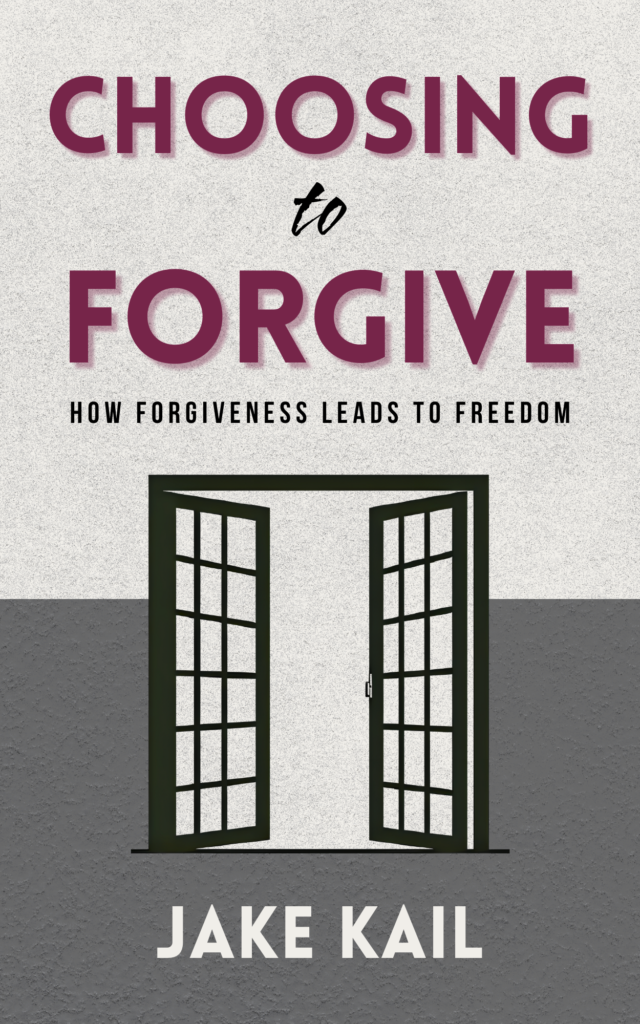
4 Reasons to Choose to Forgive
October 7, 2025
Forgiveness Opens the Prison Door
October 28, 2025
The following is an excerpt from Choosing to Forgive that explains the difference between forgiveness and reconciliation.
Another key point that needs to be clarified is that forgiveness is not the same as reconciliation. Extending forgiveness does not mean that you necessarily need to even communicate anything to the person who hurt you. This will often depend on the specifics of the circumstances. But know that you can process the situation with the Lord, allow the Holy Spirit to move in your heart, and pray prayers of forgiveness without involving the person you are forgiving. You can let go of any resentment, hatred, or bitterness that is in your heart. Although forgiveness is related to damage done by another person, it is primarily a matter between you and God. In fact, sometimes the person you need to forgive has since passed away.
Forgiveness does not mean that you must automatically reconcile with the person who hurt or abused you. It takes one person to forgive, but it takes two willing people to reconcile. While reconciliation is often ideal, it is not always possible when an offender persists in unrepentant sin and ungodly actions. You do not need to continually put yourself in situations where you are being abused. Reconciliation can happen if the person shows the fruit of genuine repentance, but that is out of your control.
Let me give some illustrations to explain the difference between forgiveness and reconciliation. Let’s suppose that you hire a man to do work on your house. You agree to pay half up front and half when the work is done, but after receiving the first payment, the worker rips you off and doesn’t fulfill his obligation. The result is that you are out a chunk of money, and your house still needs repairs done. You can forgive that person, but you can also choose to never hire him again.
To use a more serious example, suppose that it comes to light that a babysitter sexually abused one of your children while you were away from the house. You can forgive the babysitter, but you can also never allow them into your home again and certainly not alone with your children. This is not being mean or unforgiving; it is using wisdom and protecting your children from harm.
Forgiveness and Boundaries
The key point that I am making here is that you can extend forgiveness and maintain healthy boundaries at the same time. A great biblical example of this is when David fled from King Saul after Saul’s attempts to kill him. As Saul chased after David with an army of soldiers, David had an opportunity to take Saul’s life but chose to spare him. Saul then spoke words that sounded repentant, but David still kept his distance.
Not long after this, Saul was seeking after David again, showing that his repentance was not genuine. David again had a chance to easily kill Saul, again spared him, and again maintained his distance from him. David did not show signs of bitterness or unforgiveness, but he also kept a boundary. He did not reconcile with Saul or go back to the palace to be near him. Sometimes, it is necessary to take this approach. You can forgive a person from the heart, but also choose to no longer have the same level of relationship with them as before. You can extend forgiveness and maintain boundaries at the same time.
The same apostle Paul who exhorted believers to be merciful and to forgive others in Colossians 3:12-13 also said that there are some people that we are to avoid.
But know this, that in the last days perilous times will come: For men will be lovers of themselves, lovers of money, boasters, proud, blasphemers, disobedient to parents, unthankful, unholy, unloving, unforgiving, slanderers, without self-control, brutal, despisers of good, traitors, headstrong, haughty, lovers of pleasure rather than lovers of God, having a form of godliness but denying its power. And from such people turn away! (2 Timothy 3:1-5, emphasis added)
It is not wrong, sinful, or selfish to have healthy boundaries with others. Forgiveness does not always mean that you must maintain a relationship with the person who sinned against you. There are nuances to this topic and certain factors need to be weighed on a case-by-case basis. It’s not about using boundaries as an excuse to be rude or to punish someone. It’s about exercising wisdom and protecting yourself from further damage if that is what is needed.
Some have been pressured to “forgive and forget” in such a way that has caused them to be re-abused continually. This is not healthy and is a misapplication of forgiveness. Yes, we must always forgive. But we can allow time for trust to be rebuilt and look for genuine repentance before taking steps toward reconciliation. Forgiveness is always something you can do regardless of the other person’s actions. Reconciliation is a separate thing and requires active participation and true repentance from the other party involved.
Click image below to purchase:
We live in a fallen world that is full of broken people. It is inevitable that as we walk through life, we will experience hurt and be sinned against by others to one degree or another. How we respond to these situations has a dramatic impact on our life, relationship with God, and destiny.
Choosing to Forgive gives biblical teaching and encouragement to help you release the ones who have hurt you so that you can walk in the freedom that God has for you.




